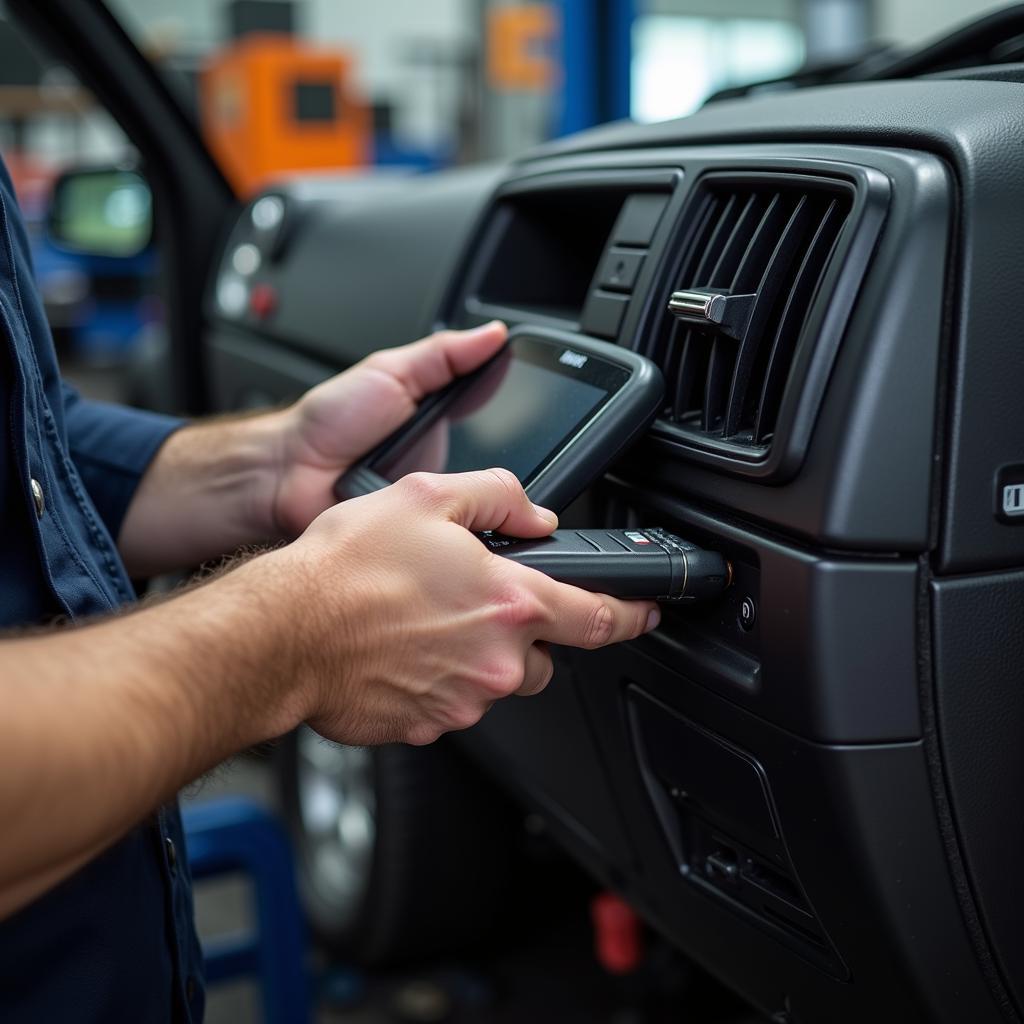Knowing how long a car diagnostic test takes can be helpful when planning your day. Maybe you’re wondering if you can wait at the garage or if you need to find alternative transportation.
This comprehensive guide will delve into the factors influencing the duration of a car diagnostic test in the UK, providing you with a clear understanding of what to expect.
What is a Car Diagnostic Test?
Before we explore the duration, let’s understand what a car diagnostic test entails. Modern vehicles are equipped with onboard computers known as Engine Control Units (ECUs). These ECUs monitor various systems within your car and store Diagnostic Trouble Codes (DTCs) when issues arise. A car diagnostic test uses a specialized scanner to retrieve these codes, effectively revealing potential problems within your vehicle’s systems, such as:
- Engine and transmission
- Exhaust system
- Airbags
- Brakes
- And more
 Modern car diagnostic equipment
Modern car diagnostic equipment
Factors Affecting Diagnostic Test Duration
Several factors contribute to the time required for a car diagnostic test. Here are some key aspects:
Complexity of the Issue
A straightforward issue like a faulty oxygen sensor might be quickly diagnosed. However, intermittent problems or issues affecting multiple systems will require more time to pinpoint.
Mechanic’s Expertise
An experienced mechanic familiar with various diagnostic tools and procedures can often complete the test faster than someone less experienced.
Garage Equipment
Garages equipped with advanced diagnostic tools can retrieve and interpret data faster than those using older equipment.
Vehicle Make and Model
Certain car manufacturers and models have more complex systems, potentially influencing the diagnostic time.
 Car diagnostic software displaying error codes on a laptop screen
Car diagnostic software displaying error codes on a laptop screen
Typical Duration of a Car Diagnostic Test
While pinpointing an exact timeframe is challenging, a basic car diagnostic test in the UK typically takes between 30 minutes to an hour. However, be prepared for a longer wait if:
- The problem is complex and requires in-depth investigation.
- The mechanic needs to consult additional resources or run further tests.
- The garage is particularly busy.
What Happens After the Diagnostic Test?
Once the diagnostic test is complete, the mechanic will provide you with a report outlining the identified issues. They will then discuss:
- Necessary repairs and estimated costs.
- Potential consequences of delaying repairs.
- Options regarding where to source parts (genuine vs. aftermarket).
 A mechanic explaining diagnostic test results to a car owner
A mechanic explaining diagnostic test results to a car owner
Tips to Optimize Your Diagnostic Test Experience
- Choose a reputable garage: Opt for a garage known for its expertise in diagnostics and your car’s make and model.
- Provide a detailed history: Inform the mechanic of any recent repairs, unusual noises, or warning lights you’ve encountered.
- Inquire about estimated costs: Before authorizing any further work, understand the potential costs involved in both diagnosis and repair.
Conclusion
While the duration of a car diagnostic test can vary, understanding the factors involved can help you plan accordingly. By choosing a reputable garage and communicating openly with your mechanic, you can ensure a smoother diagnostic experience.

Leave a Reply